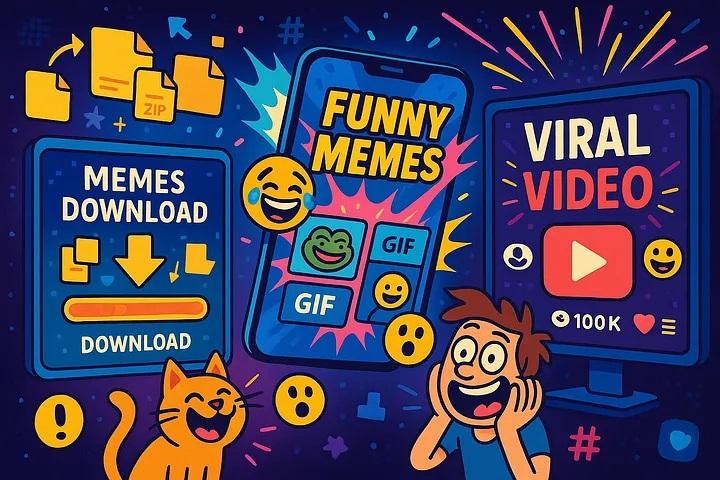Introduction: Why Funny Memes Matter
In today's fast-paced digital age, where attention spans are shorter than ever, funny memes have become a universal form of entertainment. Whether you're scrolling through Instagram, Facebook, or Reddit, you're bound to come across at least a handful of memes that make you laugh out loud or nod in agreement. But memes are more than just silly images with text—they’re a cultural phenomenon that brings people together through humor.
What Are Funny Memes?
At their core, memes are simple: a picture or video with a witty caption. But the beauty of funny memes lies in their relatability. They capture everyday situations, social observations, or pop culture references in a humorous and exaggerated way. From the famous “Grumpy Cat” to “Distracted Boyfriend,” memes often go viral because people see a little bit of themselves in them.
Funny memes can cover anything—from school struggles and work stress to dating woes and food cravings. They’re short, snappy, and instantly shareable, making them the perfect antidote to a dull moment or a bad day.
The Science Behind Why Memes Make Us Laugh
Humor is subjective, but psychologists suggest that we laugh at things that are unexpected, relatable, or absurd. Funny memes often combine these elements. They present a familiar situation but twist it in an amusing or ironic way. For example, a meme showing a cat looking guilty with the caption, “When you knock something over and pretend it wasn’t you,” resonates with pet owners and adds a human touch to animal behavior.
Moreover, memes give us an opportunity to laugh at our own problems. A meme about procrastination or Zoom fatigue might strike a chord, making us feel less alone and more amused about our shared experiences.
Memes and Social Media: A Perfect Match
Social media platforms are the ideal breeding grounds for funny memes. On apps like TikTok, Twitter (X), and Instagram, memes spread like wildfire. Hashtags and trends ensure that people see and share memes constantly, creating a collective humor culture.
Memes are also a tool for self-expression. People customize and create their own versions of popular meme templates, adding a personal or regional touch. This has led to the rise of niche meme pages, from student meme accounts to memes about specific professions, like doctors or engineers.
Memes as Modern-Day Storytelling
Believe it or not, memes are a form of storytelling. They compress a story into a single frame or a short video clip with a punchline. This makes them incredibly powerful in the age of fast content consumption.
For example, a meme about trying to diet but ending up ordering a pizza anyway tells a complete, humorous story in seconds. It’s a slice of modern life, relatable across countries and cultures.
The Therapeutic Power of Laughter
One of the most underrated aspects of funny memes is their power to uplift. In times of stress, sadness, or boredom, a single meme can bring a smile. Memes can also break the ice, connect strangers, and even improve mental health by giving us something to laugh about in tough times.
Conclusion
Funny memes are more than just digital jokes—they’re a form of art, therapy, and communication. They speak the universal language of laughter, crossing cultural and language barriers. Whether you're laughing at a sarcastic SpongeBob meme or a quirky baby Yoda caption, you're participating in a global community of humor.
So the next time you scroll past a meme that makes you chuckle, share it! You never know whose day you might brighten with just a few pixels and a clever line of text.



